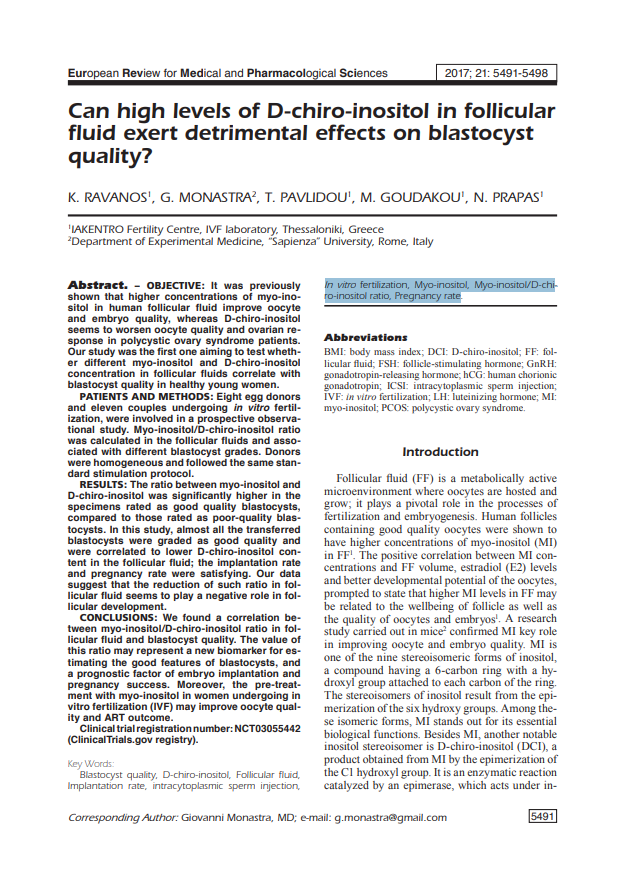Abstract
Objective: It was previously shown that higher concentrations of myo-inositol in human follicular fluid improve oocyte and embryo quality, whereas D-chiro-inositol seems to worsen oocyte quality and ovarian response in polycystic ovary syndrome patients. Our study was the first one aiming to test whether different myo-inositol and D-chiro-inositol concentration in follicular fluids correlate with blastocyst quality in healthy young women.
Patients and methods: Eight egg donors and eleven couples undergoing in vitro fertilization, were involved in a prospective observational study. Myo-inositol/D-chiro-inositol ratio was calculated in the follicular fluids and associated with different blastocyst grades. Donors were homogeneous and followed the same standard stimulation protocol.
Results: The ratio between myo-inositol and D-chiro-inositol was significantly higher in the specimens rated as good quality blastocysts, compared to those rated as poor-quality blastocysts. In this study, almost all the transferred blastocysts were graded as good quality and were correlated to lower D-chiro-inositol content in the follicular fluid; the implantation rate and pregnancy rate were satisfying. Our data suggest that the reduction of such ratio in follicular fluid seems to play a negative role in follicular development.
Conclusions: We found a correlation between myo-inositol/D-chiro-inositol ratio in follicular fluid and blastocyst quality. The value of this ratio may represent a new biomarker for estimating the good features of blastocysts, and a prognostic factor of embryo implantation and pregnancy success. Moreover, the pre-treatment with myo-inositol in women undergoing in vitro fertilization (IVF) may improve oocyte quality and ART outcome.

